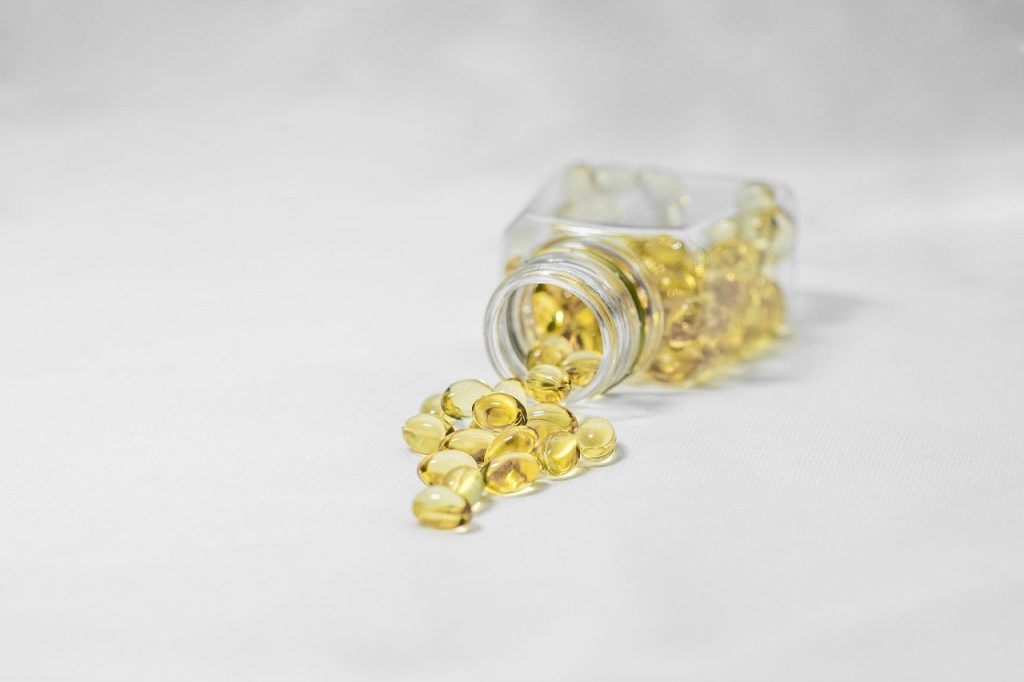Vitamin K is a substance without which the human body cannot function properly. It is needed for the development of bone tissue and the proper course of blood clotting processes. Both adults and children of all ages need it. See why it is important to take care of the proper level of vitamin K. The functioning of the human body is closely related to proper nutrition. Along with food, essential vitamins and minerals should be supplied. Their proper level ensures homeostasis and enables the existence of important life processes. A deficiency or excess of any of them leads to numerous disorders that manifest themselves in the form of various symptoms and ailments. One of the important substances for the human body is vitamin K.
Properties of vitamin K
Vitamin K is actually a mixture of different substances that have similar properties and effects. They are organic chemical compounds, soluble in fats, which are a derivative of 2-methyl-1,4-naphthoquinone. The vitamin consists of:
- phylloquinone (vitamin K1) – synthesized by plants,
- menaquinone (vitamin K2) – synthesized by bacteria present in the intestines.
You can also find menadione, i.e. vitamin K3. It is synthetically obtained. It differs from natural forms of vitamin K in that it dissolves in water.
Vitamin K1 is an oily liquid. It melts at 20°C. Vitamin K2, on the other hand, has a crystalline form. It melts at a higher temperature of – 54°C. Both substances are very sensitive to light.
Vitamin K is involved in various physiological processes that occur in the human body. First of all , it is involved in blood clotting processes. It is needed for the synthesis of prothrombin, which takes place in the liver. Vitamin K is a catalyst for the process of converting the glutamic acid residue in as many as 6 proteins before they reach the liver. This means that vitamin K is involved in the formation of blood clotting factors.
The participation of vitamin K in the development and proper functioning of the skeletal system is also important. Here, many researchers emphasize the important role of vitamin K2. This substance affects the absorption of calcium and stimulates the multiplication of bone-forming cells. It is believed that vitamin K can be successfully used in the prevention of osteoporosis, as well as its treatment. However, research on this topic is still ongoing, but the results are very promising. The requirement for vitamin K for an adult is 60–80 μg per day.
It should be supplied to the body with food. In certain situations, it is permissible to use dietary supplements – they should be of high quality and come from reliable sources. In this situation, the maximum amount of vitamin K is 200 μg per day.
In which foods can we find vitamin K?
In order to take care of the proper level of vitamin K in the body, it is necessary to include products that are a rich source of vitamin K in the menu.It is worth remembering that the diet should be healthy and varied. Only in this way can you increase the chance of providing all the necessary vitamins and elements.
Foods with vitamin K are m.among others:
- lettuce (all varieties),
- spinach
- brussels sprouts
- kale
- Broccoli
- cauliflower
- cabbage
- beetroot,
- Asparagus
- Parsley
- courgette
- peas
- liver
- milk and milk products,
- Courage.
Dietary supplements with vitamin K can also be used, but before using them, you should consult your doctor to determine the appropriate dose and choose the right preparation.
Vitamin K deficiency
Vitamin K deficiency in adults is rare. It is used in patients who are struggling with malabsorption, liver disease or who are currently undergoing antibiotic therapy. Possible symptoms of vitamin K deficiency include:
- blood clotting disorders,
- Bleeding
- prolonging the time of wound healing,
- bowel disorders,
- deterioration of bones and osteoporosis.
Vitamin K deficiencies are especially dangerous for newborns. Young children do not yet have a fully developed intestinal flora, so this substance cannot be synthesized by them. Its absence results in the development of hemorrhagic disease of newborns. Therefore, vitamin K supplementation is necessary.
Excess vitamin K in the body
The risk of developing an excess of vitamin K is low. Nevertheless, caution should be exercised when using dietary supplements that contain this substance. Increasing the dose without consulting a doctor can have unpleasant health consequences. Symptoms that indicate an excess of vitamin K include:
- increased sweating,
- chest pain,
- liver disorders,
- anemia.
The role of vitamin K is irreplaceable. It affects the proper course of blood clotting processes and helps to maintain healthy and strong bones. Both its deficiency and excess are dangerous. The main source of vitamin K should be food.

